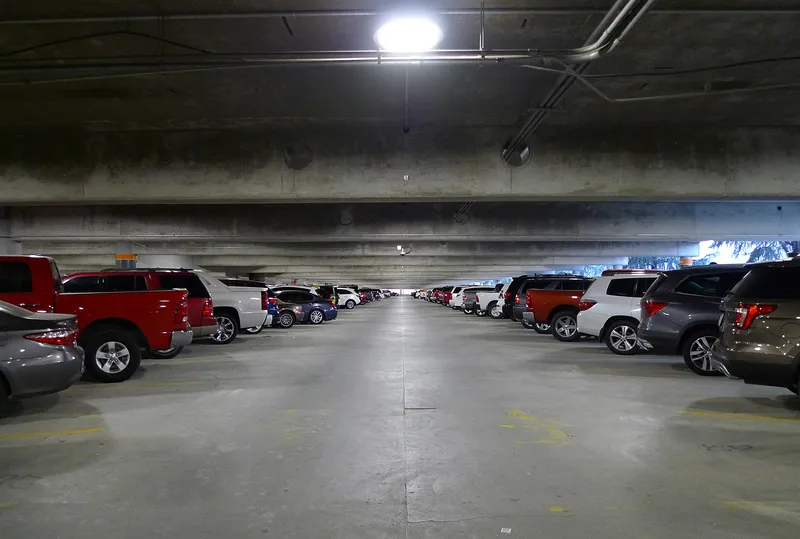Officials in Texas and Oklahoma say their electronic toll systems could be interoperable in 2014. Chairman of the Team Texas Interoperability Committee Clayton Howe says the exact timing will be up to Oklahoma to decide but indications are it could be up and running by the end of the year. Interoperability will mean Texans will be able to travel Oklahoma's turnpikes and receive their tolls on their Texas accounts. Similarly, Oklahoma drivers will be able to drive on Texas tollroads and be billed to their Ok
February 18, 2013
Read time: 3 mins
Officials in Texas and Oklahoma say their electronic toll systems could be interoperable in 2014. Chairman of the Team Texas Interoperability Committee Clayton Howe says the exact timing will be up to Oklahoma to decide but indications are it could be up and running by the end of the year.
Interoperability will mean Texans will be able to travel Oklahoma's turnpikes and receive their tolls on their Texas accounts. Similarly, Oklahoma drivers will be able to drive on Texas tollroads and be billed to their Oklahoma accounts.
Director of Operations at the Oklahoma Turnpike Authority David Machamer says it is unlikely to be before 2014. He says the agreement needs to ensure both states’ requirements are met first, then business rules need to be agreed, and only then can programming begin.
The two states have been planning for interoperability for several years. In July 2010 they procured a new toll system with139 Transcore E6 multi-protocol readers and in 2011 they began to issue the TransCore 6B+ sticker tags. The sticker tags replace Allegro passive tags with a battery.
All the work for interoperability now will be back office programming work, including modifications to transaction processing and account management and preparing to handle the regular file transfers, together with publicising the new arrangements to customers in both states.
Texas has a history of managing interoperability, which began on a peer to peer E-ZPass style model with Harris County in 2003. The decision was made to go to a hub model when375 Texas Department of Transportation (TxDOT) planned to go into tolling and when a growing number of regional mobility authorities was foreseen in 2004 and 2005. With just a single back office gateway the hub model would be more easily expanded, they reasoned, and easier for new and small toll systems than peer-to-peer dealings.
The Oklahoma Turnpike system is a comprehensive system providing all the expressway standard highway capacity outside of the two tax-funded interstates I-35 north-south and I-40 east-west. Ten turnpikes provide connections northeast from Oklahoma City to Tulsa and to the state line on the way to St Louis Missouri. They provide the rural links to the state's southeast, southwest as well as urban systems in Tulsa and Oklahoma City.
However, despite their proximity the amount of traffic that interacts is not huge. Texan drivers using Oklahoma toll gantries represent about 1.5% of transactions, and Oklahoman drivers passing under Texas toll gantries are about 1%. Transactions in Texas total about 1.3 billion, in Oklahoma about 150 million per year. This suggests an average of perhaps 40,000 transactions a day, but it will represent a major new convenience for customers in two states.
Interoperability will mean Texans will be able to travel Oklahoma's turnpikes and receive their tolls on their Texas accounts. Similarly, Oklahoma drivers will be able to drive on Texas tollroads and be billed to their Oklahoma accounts.
Director of Operations at the Oklahoma Turnpike Authority David Machamer says it is unlikely to be before 2014. He says the agreement needs to ensure both states’ requirements are met first, then business rules need to be agreed, and only then can programming begin.
The two states have been planning for interoperability for several years. In July 2010 they procured a new toll system with
All the work for interoperability now will be back office programming work, including modifications to transaction processing and account management and preparing to handle the regular file transfers, together with publicising the new arrangements to customers in both states.
Texas has a history of managing interoperability, which began on a peer to peer E-ZPass style model with Harris County in 2003. The decision was made to go to a hub model when
The Oklahoma Turnpike system is a comprehensive system providing all the expressway standard highway capacity outside of the two tax-funded interstates I-35 north-south and I-40 east-west. Ten turnpikes provide connections northeast from Oklahoma City to Tulsa and to the state line on the way to St Louis Missouri. They provide the rural links to the state's southeast, southwest as well as urban systems in Tulsa and Oklahoma City.
However, despite their proximity the amount of traffic that interacts is not huge. Texan drivers using Oklahoma toll gantries represent about 1.5% of transactions, and Oklahoman drivers passing under Texas toll gantries are about 1%. Transactions in Texas total about 1.3 billion, in Oklahoma about 150 million per year. This suggests an average of perhaps 40,000 transactions a day, but it will represent a major new convenience for customers in two states.







